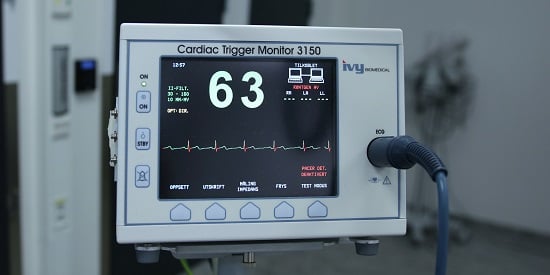The dying laws overlooked amid Victoria's euthanasia debate: Deakin expert
Media releaseNew medical treatment laws that quietly came into effect in Victoria last week could have significant public health implications on par with the Voluntary Assisted Dying Act, according to a Deakin health law expert.
Deakin Law School researcher Dr Neera Bhatia said the Medical Treatment Planning and Decisions Act 2016 – which allows people to make an advance care directive outlining their future medical wishes and treatment preferences – was something every Victorian should be aware of.
Dr Bhatia said the new directive went much further than previous "refusal of treatment" certificates, offering a legally binding mechanism for people to refuse or consent to specific treatments.
"Previous directives to refuse a specific treatment did not cover consent, and were only binding while the person retained decision-making capacity," she said.
"They were more of a guide for clinicians, but the ultimate discretion rested with whoever had medical power of attorney – under this new law, the directive is binding."
Dr Bhatia said the directive allowed people to better express their personal preferences or values in relation to future medical treatment.
"The Voluntary Assisted Dying Act was a watershed moment in Australian political history, but this legislation that just came into effect deserves just as much attention," she said.
"An advance care directive gives individuals a degree of control, allowing them to plan and make medical treatment decisions for the future when they may no longer have the capacity to do so."
Dr Bhatia said society needed to talk more about death and how we want to die.
"We don't discuss death enough," she said.
"We just aren't comfortable with death, as a state of being or as a process, but it's inevitable and it's something that unites all of us.
"Some of us may be fortunate enough to go through life without experiencing any serious illness, though most of us will require medical treatment at some stage, and we need to discuss the sort of treatments we want in case there comes a time when we lose the capacity to make those decisions for ourselves."
Dr Bhatia said the advance care directive was available to any Victorian, including children, as long as they have decision-making capacity and can understand the nature and effect of each statement.
"Many of us won't meet the stringent criteria for voluntary assisted dying, but we still want to die 'a good death' and have some control over our end-of-life decision making," she said.
"An advance care directive can be an extremely powerful individual tool, giving people choices that will have an impact on their quality of life, based on their personal beliefs and value system."
Dr Bhatia said one of the advance care directives was a legally binding "instructional directive".
"An instructional directive is a legally binding statement specific to a person's decision to consent or refuse to specific medical treatment or procedures, and it can't be overruled by family members," she said.
"An example of this might be where a person consents to bypass surgery but refuses CPR."
The second type of advance care directive allows for "values directives" based on a patient's personal beliefs and preferences.
"This includes the types of outcomes of medical treatment decisions that a person would consider to be acceptable in relation to their overall quality of life," Dr Bhatia said.
"For instance, as person could state in their values directive that if they become unable to recognise family and friends or unable to communicate then they wouldn't want to continue receiving medical treatment to prolong their life.
"Every person in Victoria needs to know about this, because it could play a major role in how they live, and ultimately the dignity with which they are allowed to die."

